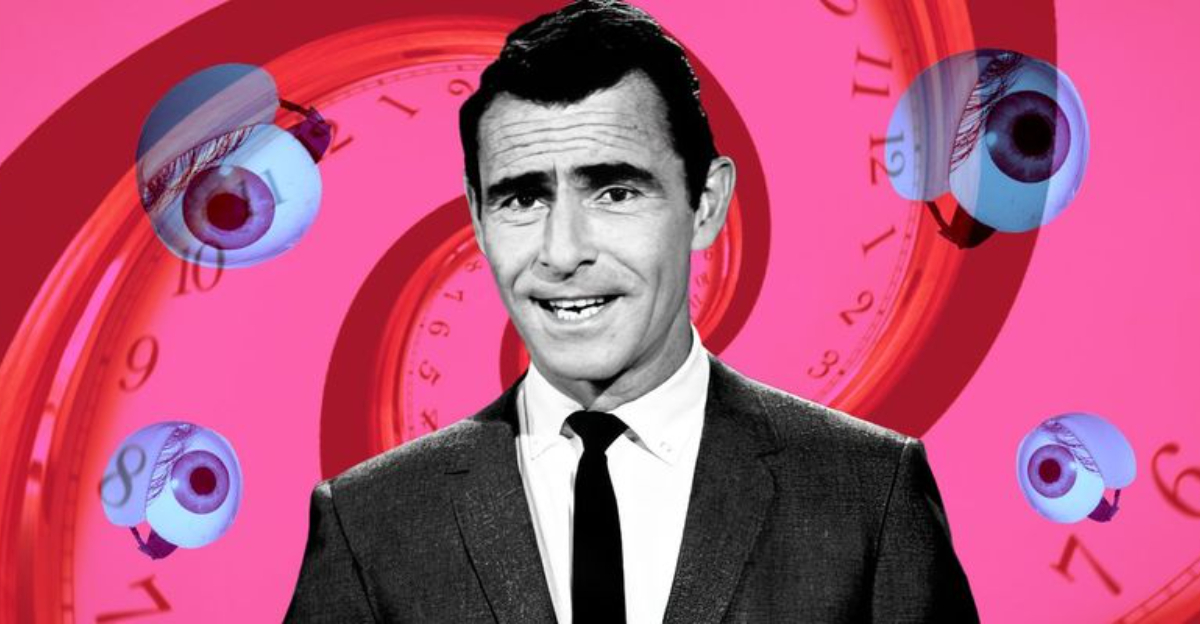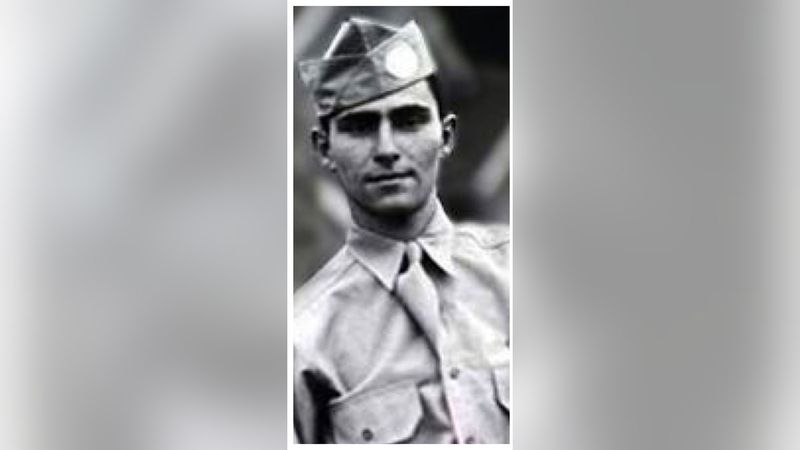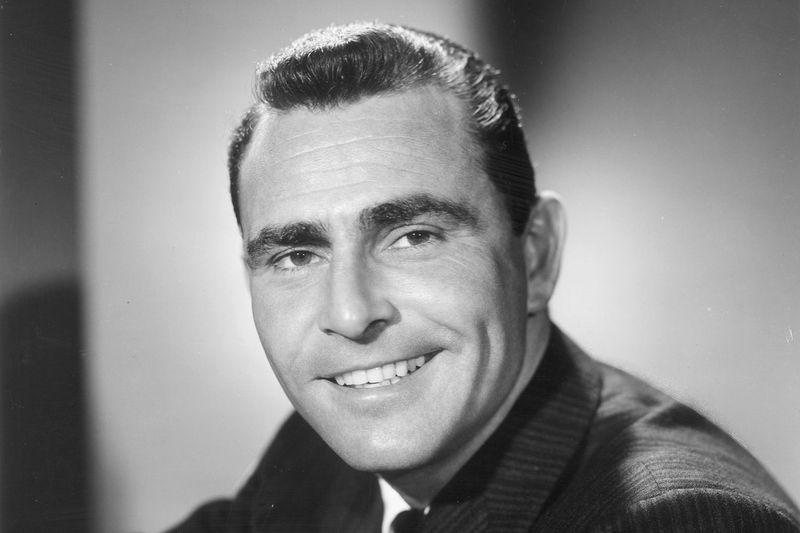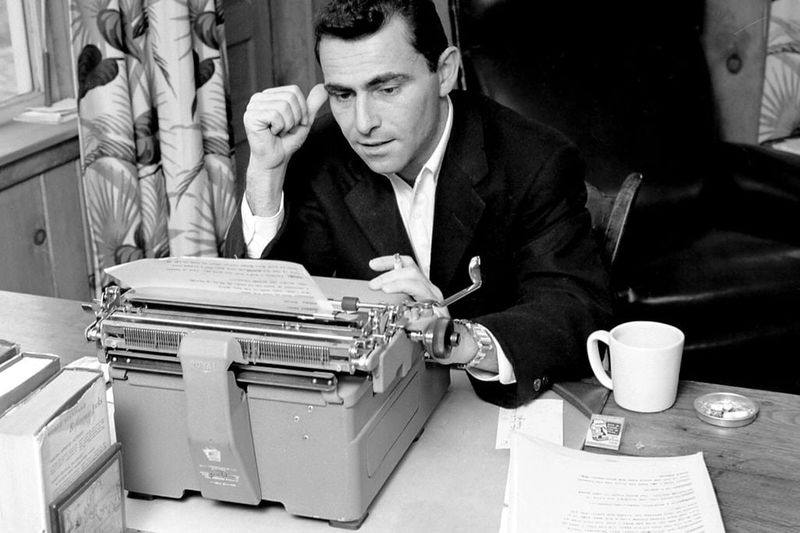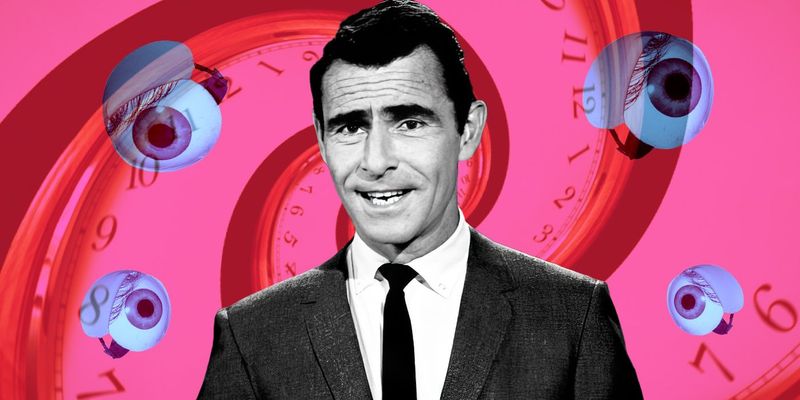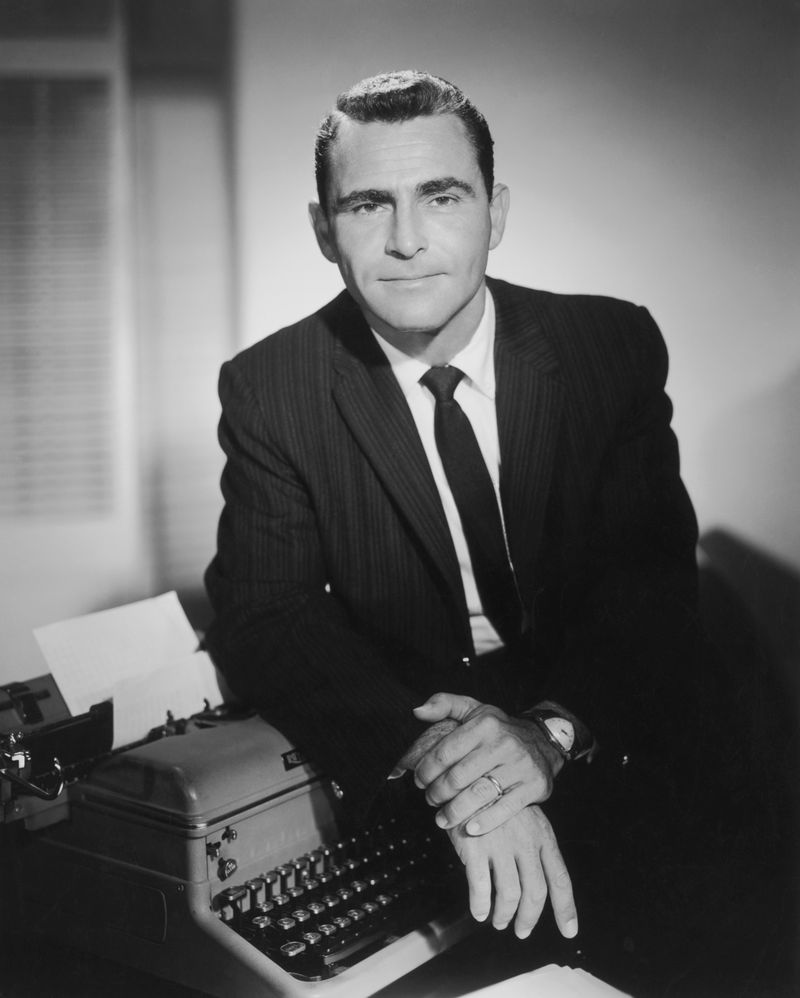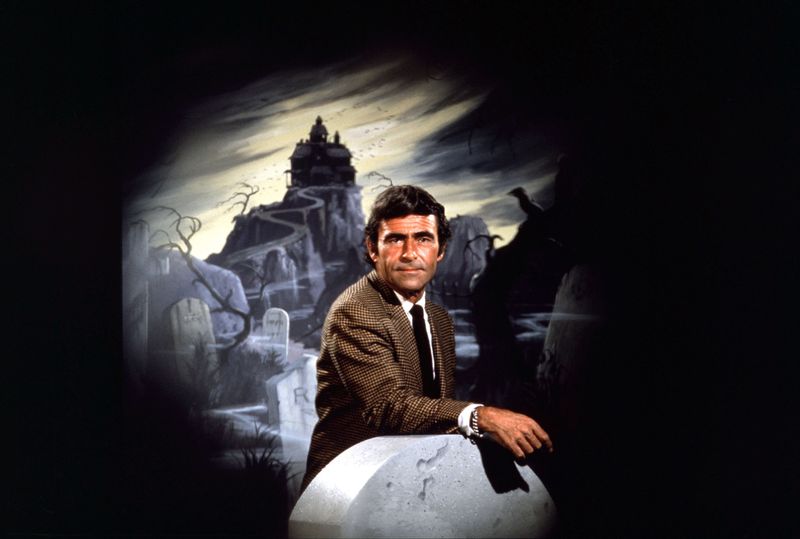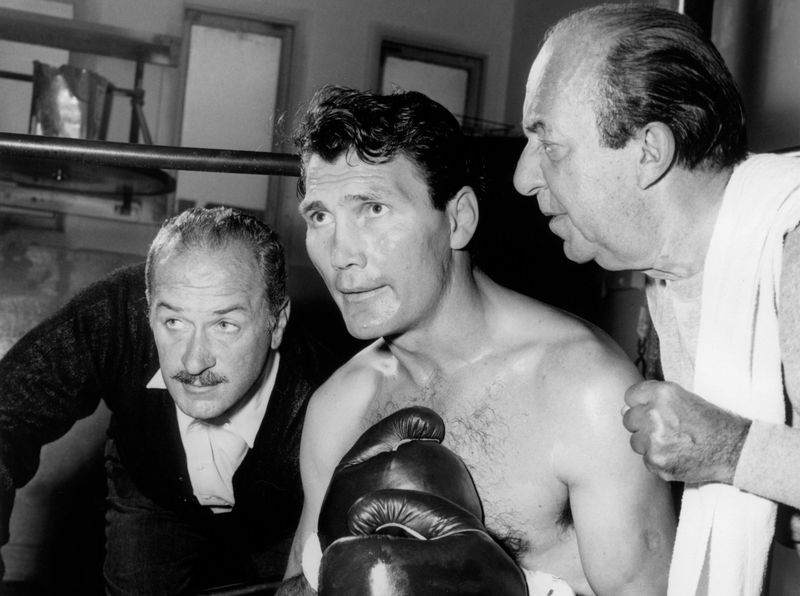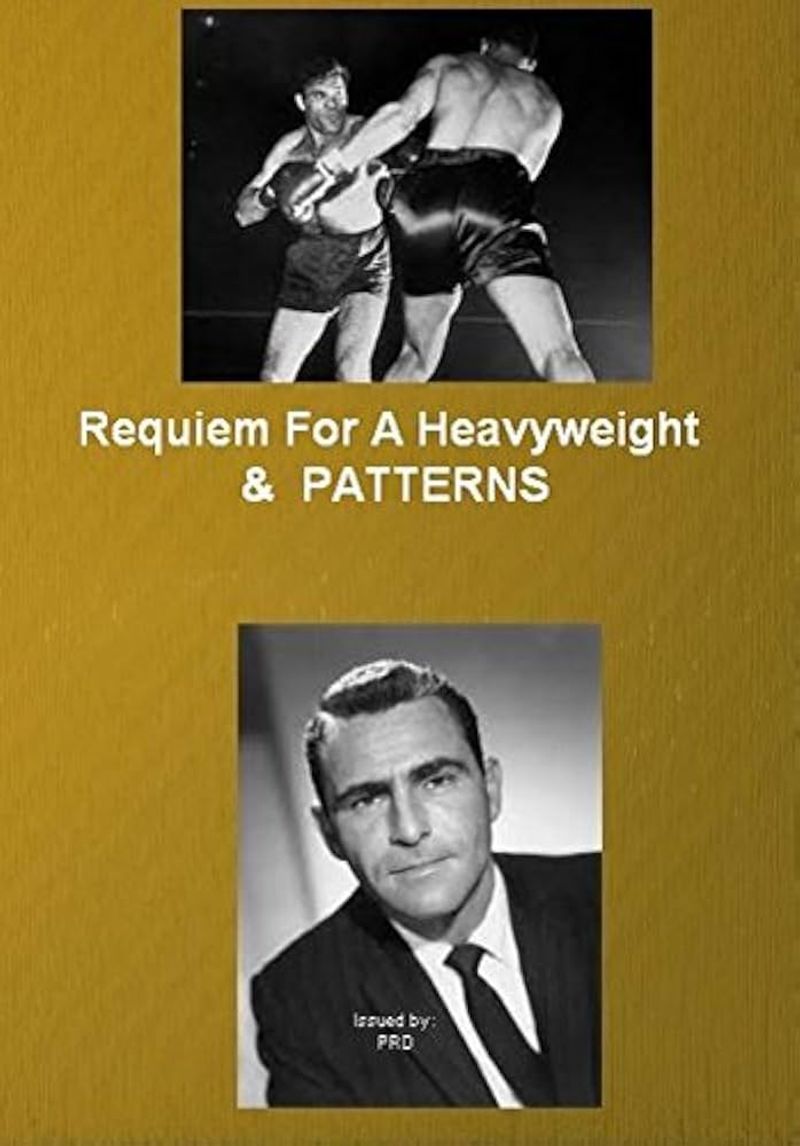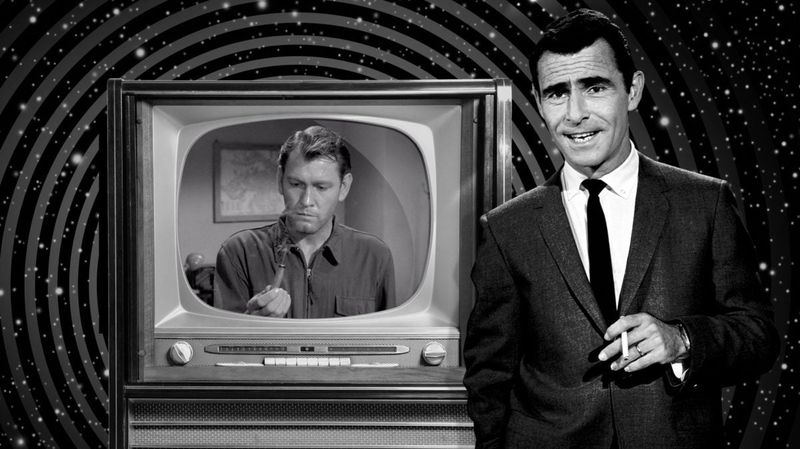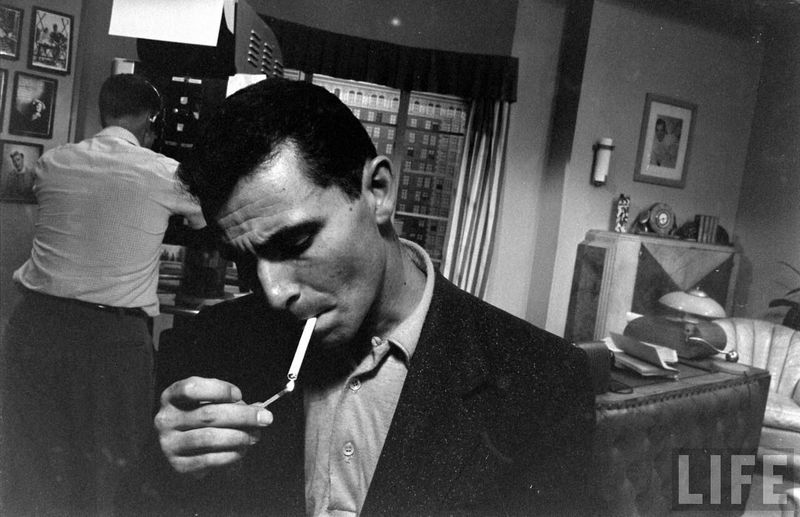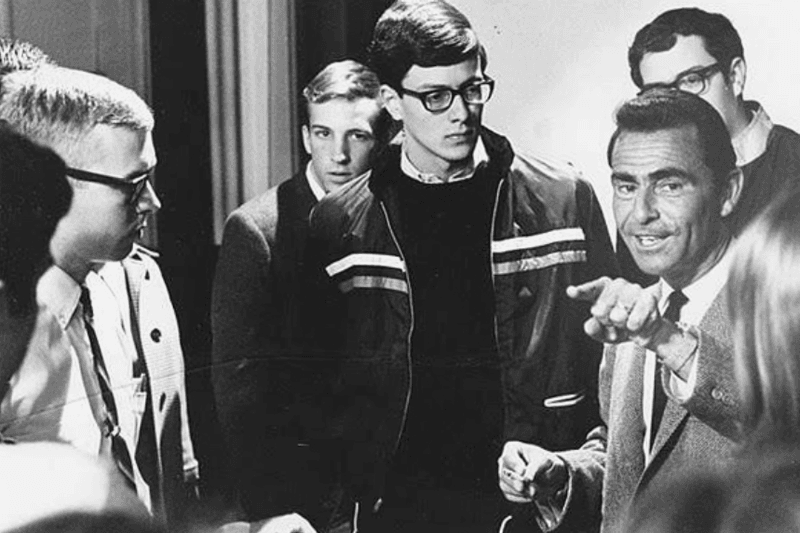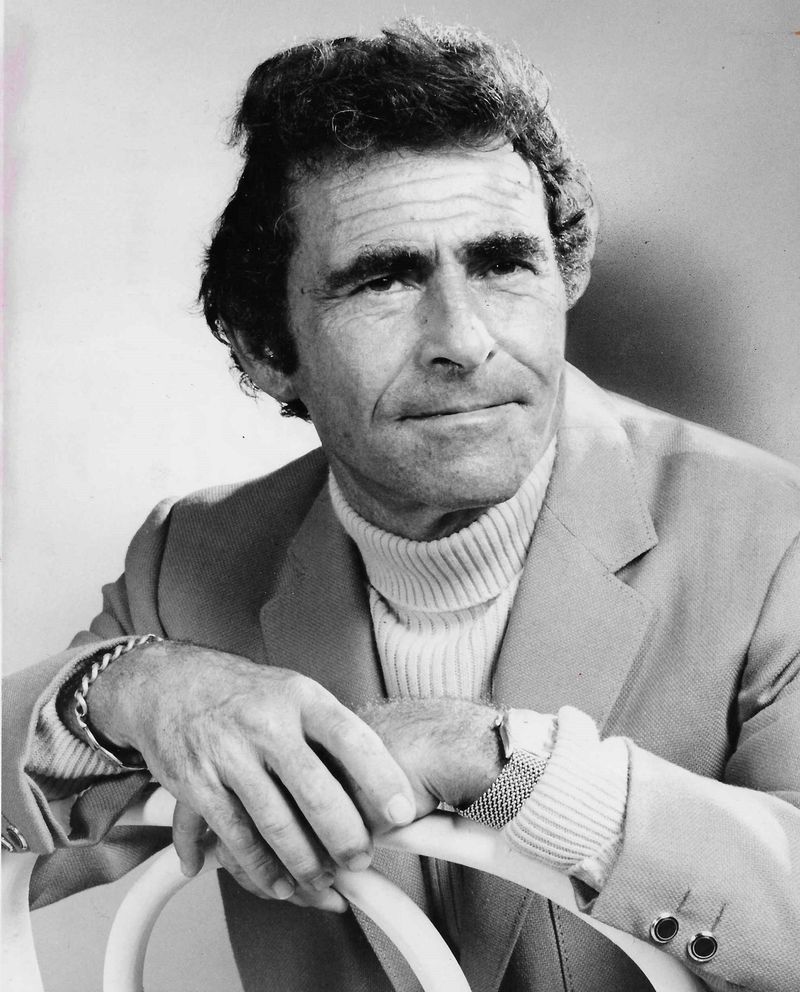Rod Serling, a pivotal figure in television history, transformed the medium with his groundbreaking storytelling and fearless exploration of social issues.
Known for creating “The Twilight Zone,” Serling’s influence extends far beyond his time, leaving a lasting legacy that continues to inspire modern creators. This blog delves into 15 lesser-known facts about Serling’s life and work, showcasing his indelible impact on TV.
From his time as a paratrooper to his battles against censorship, each section reveals a different facet of the man who changed television forever.
1. He Was a Decorated WWII Paratrooper
Before he became a renowned writer, Rod Serling served as a paratrooper in the Pacific Theater during World War II. He was awarded the Bronze Star and Purple Heart for his bravery. These experiences profoundly influenced his storytelling, often reflecting the moral complexities and horrors of war.
Serling’s time in the military left an indelible mark on him, shaping his worldview and narrative style. He used these experiences to craft stories that explored human nature and moral dilemmas, offering audiences a deeper understanding of the human condition.
2. He Wrote Over Half of The Twilight Zone
Rod Serling was not just the creator of “The Twilight Zone” but also its primary writer. Of the 156 original episodes, he wrote 92. His commitment to the series was unparalleled, often working under intense pressure to meet deadlines.
This prolific output not only showcased his creativity but also his dedication to addressing social issues through science fiction. Serling’s ability to weave compelling narratives with profound messages made “The Twilight Zone” a timeless classic, revered by audiences and critics alike.
3. He Fought TV Censorship Relentlessly
Rod Serling was a staunch advocate for creative freedom, often clashing with network censors. He cleverly used science fiction to tackle contentious topics like racism and McCarthyism, which were often deemed too controversial for television.
By embedding social commentary within fantastical narratives, Serling bypassed censorship, allowing him to address important issues subtly yet powerfully. His relentless fight for artistic integrity paved the way for future storytellers to explore bold and challenging themes.
4. “The Twilight Zone” Was His Way Around Censorship
Serling’s creation of “The Twilight Zone” was not just a creative endeavor but a strategic move against censorship. He used the show as a platform to discuss topics like war and fascism, veiled in the guise of science fiction and fantasy.
This clever approach allowed him to explore provocative themes without the usual pushback from network executives. “The Twilight Zone” became a vessel for his messages, artfully combining entertainment with thought-provoking content, ensuring the show’s enduring legacy.
5. He Was the Face and Voice of the Series
Not only did Rod Serling write many of “The Twilight Zone” episodes, but he also became its iconic narrator. His distinctive voice and on-camera introductions set the tone for the series, blending eeriness with intellectual depth.
Serling’s presence was integral to the show’s identity, making each episode’s entry memorable and engaging. His unique delivery style became synonymous with “The Twilight Zone,” enhancing the show’s mysterious and thought-provoking atmosphere.
6. He Won 6 Emmy Awards
Throughout his illustrious career, Rod Serling was awarded six Emmy Awards, a testament to his exceptional talent and influence in television. He was one of the most awarded writers of his time, recognized for his groundbreaking narratives and innovative storytelling.
These accolades reflect Serling’s ability to captivate audiences and critics alike, solidifying his place in TV history. His work not only entertained but also provoked thought, leaving an indelible mark on the industry.
7. He Created Night Gallery After The Twilight Zone
Following the success of “The Twilight Zone,” Rod Serling launched “Night Gallery,” a darker, more horror-centric anthology series. Despite its intriguing premise, Serling faced limitations in creative control, which led to frustration.
The show, however, still carried his signature style of blending the macabre with moral questions, albeit in a less controlled environment. “Night Gallery” showcased Serling’s versatility and continued his tradition of thought-provoking storytelling, albeit with a different tone.
8. He Once Boxed Professionally
Before committing to a life of writing, Rod Serling pursued professional boxing to make ends meet. This lesser-known chapter of his life highlights his determination and willingness to explore various paths before finding his true calling.
Serling’s brief boxing career was a testament to his resilience and adaptability, qualities that would later define his writing career. The discipline and perseverance he learned in the ring translated into his relentless pursuit of storytelling excellence.
9. He Wrote Requiem for a Heavyweight—a TV Classic
Rod Serling gained critical acclaim with his 1956 teleplay “Requiem for a Heavyweight,” which is regarded as one of television’s greatest dramas. The story’s emotional depth and powerful performances resonated with audiences, solidifying Serling’s reputation as a master storyteller.
“Requiem for a Heavyweight” explored themes of personal struggle and redemption, showcasing Serling’s ability to tackle human emotions with sensitivity and insight. This work was a precursor to the socially conscious narratives that would define his later projects.
10. He Predicted the Rise of Reality TV
Rod Serling had an uncanny ability to foresee cultural shifts, predicting the rise of reality television long before its emergence. He warned that entertainment could become voyeuristic and exploitative, offering a prescient critique of future media trends.
Serling’s insights reflected his deep understanding of society’s evolving relationship with entertainment. His predictions served as a cautionary tale, urging creators to prioritize meaningful content over sensationalism. His forward-thinking vision continues to inspire industry professionals today.
11. He Was a Smoking Addict
Known for his chain-smoking habit, Rod Serling smoked three to four packs a day. This addiction sadly contributed to his premature death at the age of 50 from heart complications.
Serling’s smoking was often visible during his on-screen appearances, becoming an inadvertent part of his public persona. Despite the health risks, his work ethic and passion for storytelling never waned, leaving a legacy that endures beyond his untimely passing.
12. He Wrote the Original Script for Planet of the Apes
Rod Serling penned an early version of the 1968 film “Planet of the Apes,” introducing the iconic twist ending with the Statue of Liberty. Although the script was later rewritten, Serling’s imaginative ideas laid the foundation for the film’s success.
His ability to blend social commentary with science fiction was evident in this work, further showcasing his talent for creating thought-provoking narratives. “Planet of the Apes” remains a testament to his visionary storytelling.
13. He Taught College Students About Writing
In his later years, Rod Serling became a beloved professor at Ithaca College, sharing his knowledge and passion for writing with students. His engaging teaching style and genuine interest in mentoring aspiring writers left a lasting impact.
Serling’s influence extended beyond television, as he inspired a new generation to embrace creativity and explore complex themes in their work. His legacy as an educator is as significant as his contributions to television, fostering a love for storytelling in countless students.
14. He Believed in the Power of Moral Storytelling
Rod Serling viewed writing as a powerful tool for addressing moral dilemmas and advocating for human rights. His scripts often explored themes of injustice and conformity, challenging viewers to reflect on their values and beliefs.
Serling’s commitment to moral storytelling set him apart, as he used his platform to shed light on societal issues. His work remains a beacon of integrity and courage, inspiring writers to use their voices for positive change.
15. His Legacy Lives on in Pop Culture
Rod Serling’s impact on pop culture is undeniable, with his influence seen in contemporary works like “Black Mirror” and Jordan Peele’s “Twilight Zone” reboot. He revolutionized the sci-fi anthology format, setting a standard for engaging and thought-provoking content.
Serling’s ability to blend entertainment with social commentary has inspired countless creators, ensuring his legacy endures. His vision continues to resonate, proving that powerful storytelling can transcend time and remain relevant in an ever-changing world.
